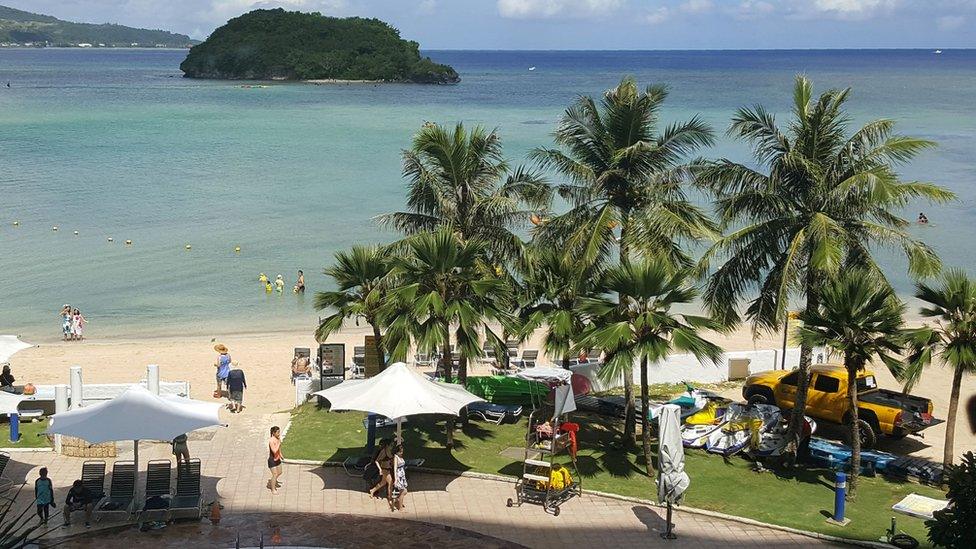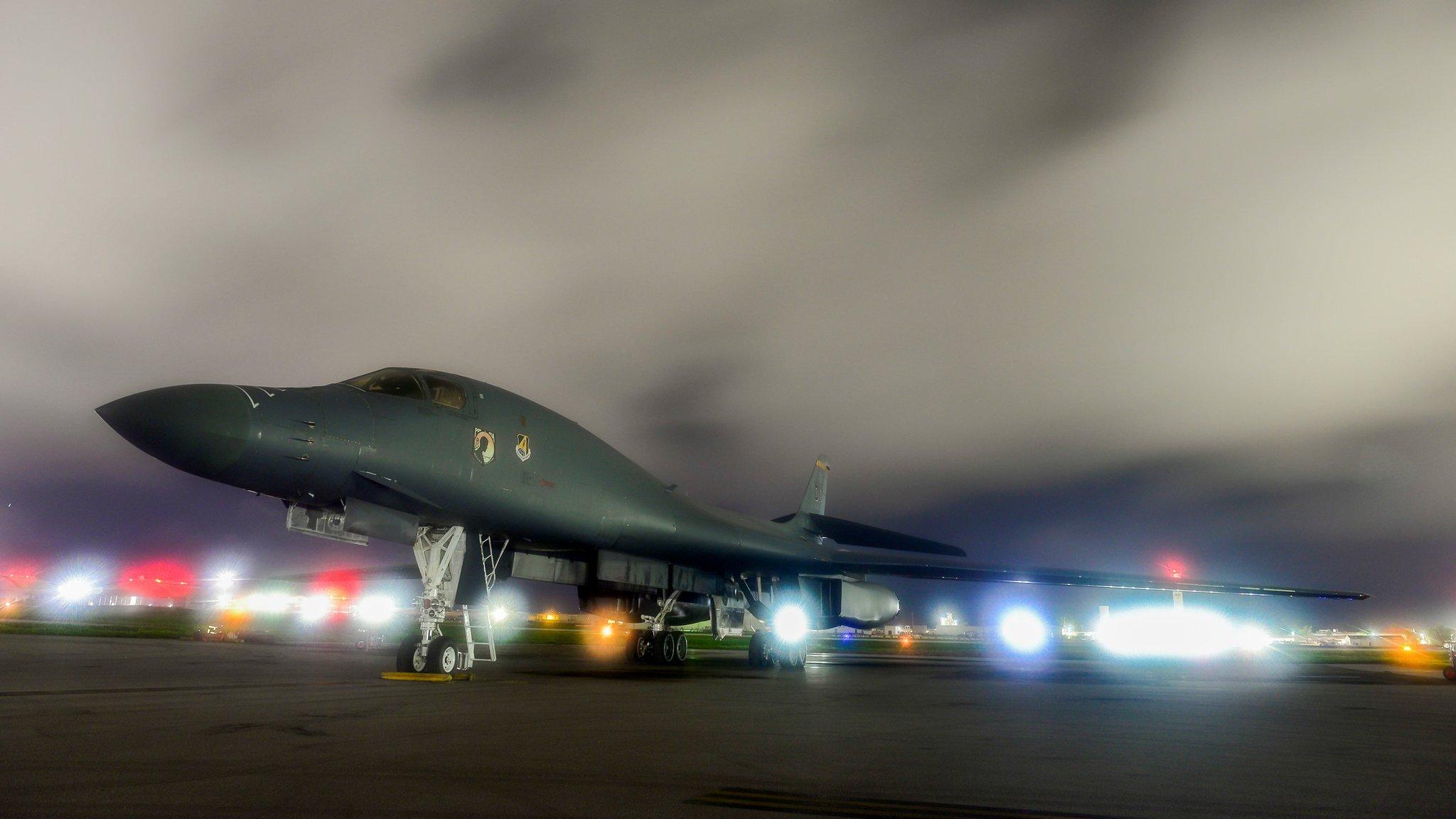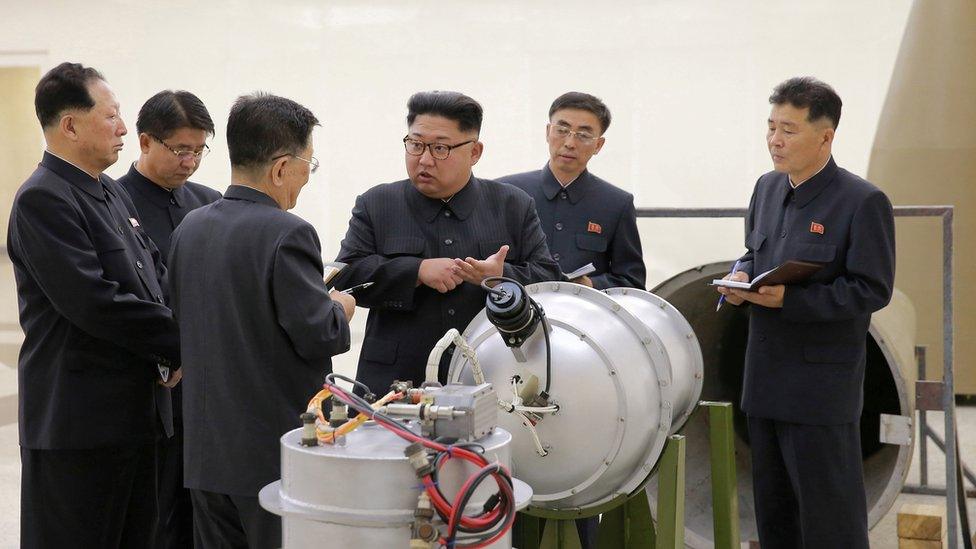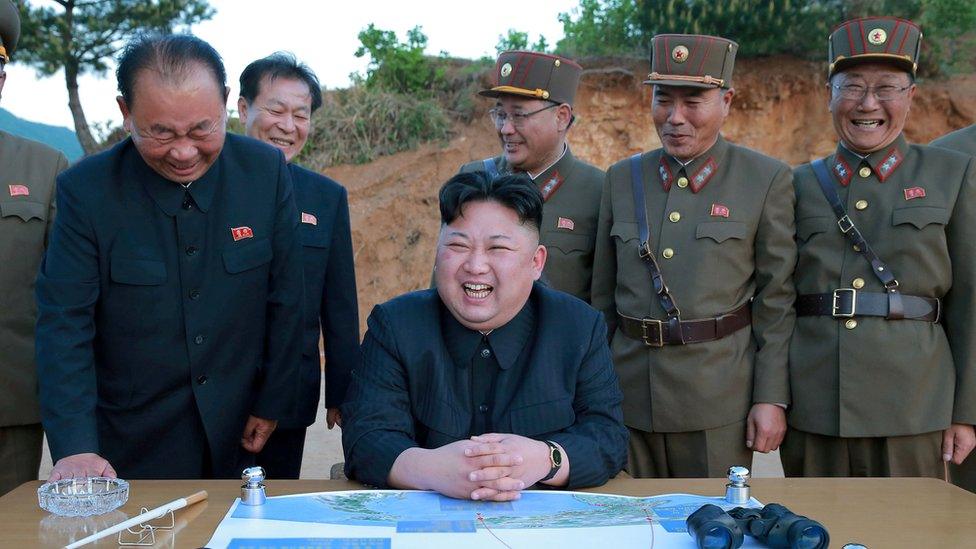North Korea threats unsettle Guam islanders
- Published

North Korea claims it has missiles capable of reaching the US mainland, but its latest threat is against Guam, a much closer target.
The small island in the Pacific is home to an important strategic US airbase, US nuclear bombers and about 6,000 troops along with some 165,000 civilians. It's a US territory, so an attack on Guam would be an attack on the US.
The Guamanian authorities were quick to say there was nothing to fear from North Korea's angry rhetoric.
"I want to reassure the people of Guam that currently there is no threat to our island," Governor Eddie Baza Calvo said in a statement on Facebook, external, adding that the island was "prepared for any eventuality".
But it has left many on the tourism-reliant island concerned.
"Yes, of course people are worried," front desk manager at a local hotel, Adele, told the BBC.
"It is scary to think that there is a threat from North Korea on Guam."
Local stand-up comedian Chris "Malafunkshun" Barnett said there was a real level of anxiety: "There have been threats before but this time feels different.
"We're really in caught in the cross fire. President Trump seems as much of a sabre-rattler as Kim Jong-un in Pyongyang.
"And a lot of people here feel like Trump is the guy who might actually press the button."
President Trump threatened a response 'like the world has never seen'
The story is all over the local media on Guam, adding to the nervousness of the residents.
"We should all prepare for whatever happens," Adele suggested, adding that she planned to stock up on food after work, in case the crisis escalated.
"Many people are taking such precautions. We're keeping an eye on the news and we're all praying that the military will help us."
Isa Baza, a local television reporter, said the authorities believe it would take about 14 to 15 minutes for a North Korean missile to reach Guam.
"And so, that's not a lot of time to respond," she told the BBC. But Ms Baza added that the Guam Homeland Security Office "did say that if there were any threat they would put out a mass public notification via the emergency broadcasting system".
'Unhelpful' tweeting
It is not the first time the small island has found itself named as a potential target for North Korean rockets - aside from US military bases in South Korea or Japan, the Pacific island is the closest target for Pyongyang should the regime want to attack the US.
Congresswoman for Guam Madeleine Z Bordallo said in a statement, external the most recent threat was "dangerous and it further heightens tensions in our region".
She went on to criticise President Trump for his "unhelpful" tweeting on the matter and "strongly urged" him to "explore every avenue" to peacefully respond.
Same old threat?
But while local media are citing many residents sharing the heightened concern, not everyone is fazed by the situation.
"It's not a big deal," Cathleen Viray, another hotel worker, told the BBC.
Allow X content?
This article contains content provided by X. We ask for your permission before anything is loaded, as they may be using cookies and other technologies. You may want to read X’s cookie policy, external and privacy policy, external before accepting. To view this content choose ‘accept and continue’.
She pointed out that such threats were not new and that people had been living with this situation for a couple of years already.
Local dive instructor Yuka, who caters mostly for Japanese tourists, agreed with her.
People were concerned, she said, but said she herself was not too worried.
"There's a sense of resignation among many people here," Mr Barnett agrees. "After all, we're talking about a possible nuclear strike here.
"But I think this is moving too far too fast - and that we haven't really given diplomacy a chance yet."
- Published9 August 2017

- Published21 April 2020

- Published9 August 2017
